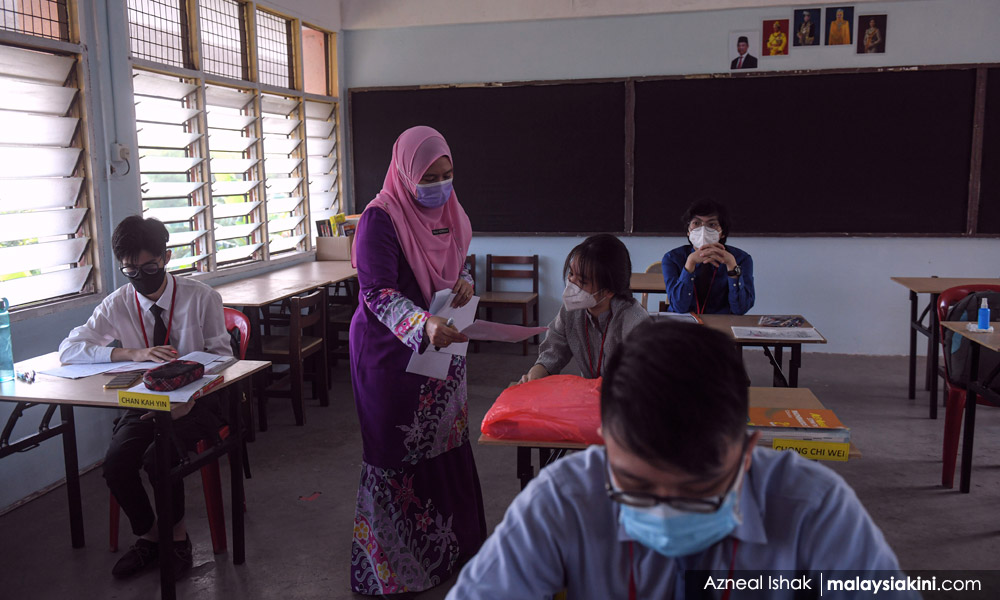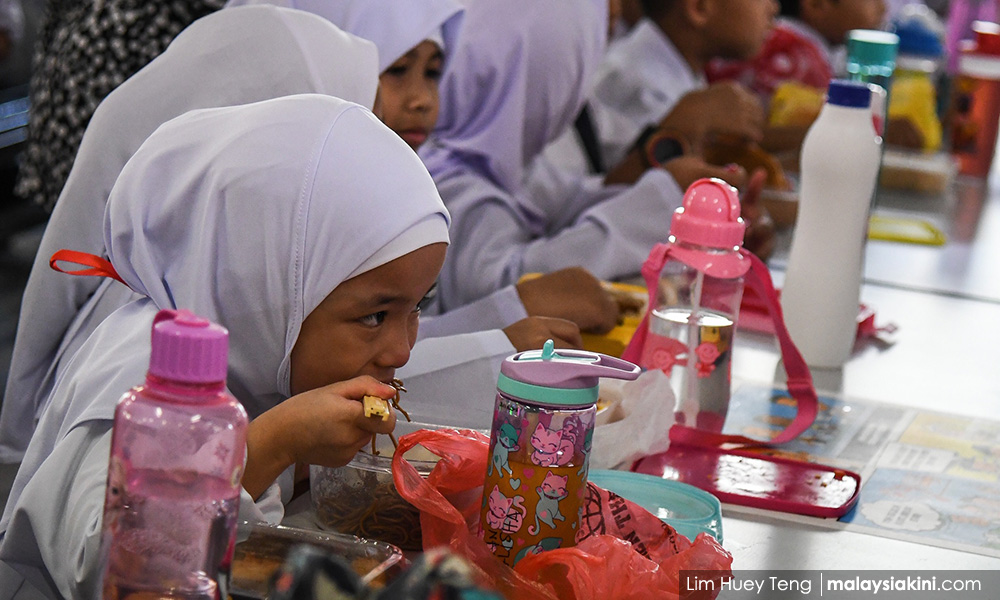The new government under Anwar Ibrahim must abandon the previously popular narrative that focused on dropping useless or “irrelevant” subjects from our education curricula.
Remember a young politician once suggested in 2021, that undergraduates at universities should not have to take irrelevant, compulsory subjects?
According to this politician, law students should not be forced to take a class on Islamic civilisation. Rather such courses, which might also include Malaysian studies, ethnic relations, global affairs, or world religions, should be electives.
While I can agree with this suggestion, I reject the use of the term “irrelevant”. Elective courses are never irrelevant. If they were, why have them as electives in the first place?
Furthermore, the courses mentioned above are most definitely needed in a society like Malaysia, with such a toxic political climate.
To say that any subject in schools or at the university level is “useless” or “irrelevant”, assumes the following.
First, it assumes that these subjects were once useful but have since outgrown their efficacy.
The second assumption is that there are more practical subjects that can better serve the changing demands of our society.
Third, it assumes that someone somewhere has done extensive empirical research that verifies the first two assumptions.
What then are “useful” or “relevant” subjects that young school-goers should learn? In my opinion, these should be nutrition, mental health, sustainable living, sociology and anthropology, human rights, personal finance, and relationship values. These would be very important in the Malaysian context.
For our purposes here, let us focus on four of these - nutrition, personal finance, sociology and anthropology, and human rights.

Nutrition
Teach school children the importance of reading nutrition labels on food products that they or their parents might purchase.
World Obesity Day was on March 4 2022. It is a day commemorated annually, to promote awareness about the risks of obesity, and the challenges it poses to economies, healthcare systems, and the overall productivity of the workforce.
Most importantly for Malaysians, recognising World Obesity Day is about improving the quality of our lives.
Malaysia has the highest rate of adult obesity in Southeast Asia. Malaysia also has the highest number of people in Asia, living with diabetes, with a one-in-five ratio.
The Malaysian Diabetes Index (MDI) survey recently conducted a poll and found that more than half the respondents did not fully understand the disease and its associated health complications.
Even more worrying is the fact that diabetes among those under the age of 40 years, is increasing rapidly, and this is because of the increasing prevalence of obesity among the youth.
Many products at the supermarkets and kedai runcit come with nutrition labels. Why shouldn’t teachers educate students in school about the merits of a balanced diet, what happens when that balance is disturbed, and what diseases humans develop when we consistently overeat? Such classes are extremely useful.
These school subjects should focus on the merits of choosing food products that are high in protein, and low in sugar, sodium, and trans fats. Such information is displayed clearly on nutrition labels.
So, from young, these students will learn to avoid indulging in fast foods, sweet drinks, and processed foods. Having a bowl of instant noodles occasionally is acceptable, but not daily, or even three times a day, which I am quite sure many Malaysians indulge in.

Expose primary and secondary school children to global statistics on health and nutrition. For example, publications from international health agencies can be made compulsory reading for these courses.
The latest research and statistics from the WHO, UNFPA, SIDA, International Diabetes Federation, Unesco, UNDP, FAO, Colombo Plan, and the World Bank can be easily translated into Bahasa Malaysia. The lessons or teaching plans that teachers create could be made fun and interesting so that the learning experience is not dull or boring.
Lastly, it takes more money to consume unhealthy, fast, and processed food, than it does healthy food. It will take less time though, to consume unhealthy food. So, if you want to be healthy, less stressed and save more ringgit, you had better learn time management!
This too can be taught in schools.
Personal finance
Subjects about nutrition complement another useful subject to introduce in schools. Secondary school students can be taught personal finance, such as investment, interest rates, taxes, debt, and the dangers of credit cards.
These subjects could also have modules on kleptocracy, corruption, and money laundering as well. The latter is a much-needed topic in Malaysia, for obvious reasons.
In this way, when students leave school, they will have a head start on how to budget their earnings.
They will hopefully also learn to despise corrupt people and to shun, avoid and report them to the relevant authorities.

Sociology and anthropology
There is no reason why young Malaysians should wait until university to learn about what makes us human.
With the lowering of the voting age, secondary students should start learning more about different cultures, races, ethnicities, gender theories, social classes, and how politics and society mix. Such subjects must be global in nature, and not just focused on Malaysia.
Sociological and anthropological subjects will develop critical minds among young Malaysians. Such subjects will also increase their self-confidence and curiosity about the world.
They will learn to ask questions about race and religion, tactfully, and without fearing that they are treading on sensitive ground. Of course, the teachers too must be trained to lead by example.
But most importantly, there must be political will.
Human rights
Human rights reflect the basic human needs of all societies. They establish the basic standards without which people cannot live in dignity.
The Universal Declaration of Human Rights (UDHR) codified the rights and responsibilities of all citizens globally, in 1948.
Human rights are about equality, dignity, respect, and justice. Examples of rights include freedom from discrimination, the right to life, freedom of speech, the right to marriage and family, and the right to education.
Part of these modules in class could include learning how to spot manipulative and abusive behaviour among family members, relations of power based on gender, or people who are in positions of authority. These include parents, relatives, religious teachers, headmasters, school prefects, and older siblings.
Lessons could also emphasise the importance of spaces to speak honestly, and openly, so that we may break the feudal, top-down hierarchical culture that has been so ingrained in our education system.
Providing spaces to express and share ideas is a human right. It helps open the mind, nurtures critical thinking, and ultimately improves social cohesion.
Best of luck to the newly minted education minister and higher education minister. You both have a huge responsibility.
I hope you will approach your tasks with sincerity, honesty and commitment to the nation. - Mkini
SHARIFAH MUNIRAH ALATAS is an academician with zero tolerance for corrupt, arrogant, and frivolous leadership.
The views expressed here are those of the author/contributor and do not necessarily represent the views of MMKtT.



No comments:
Post a Comment
Note: Only a member of this blog may post a comment.